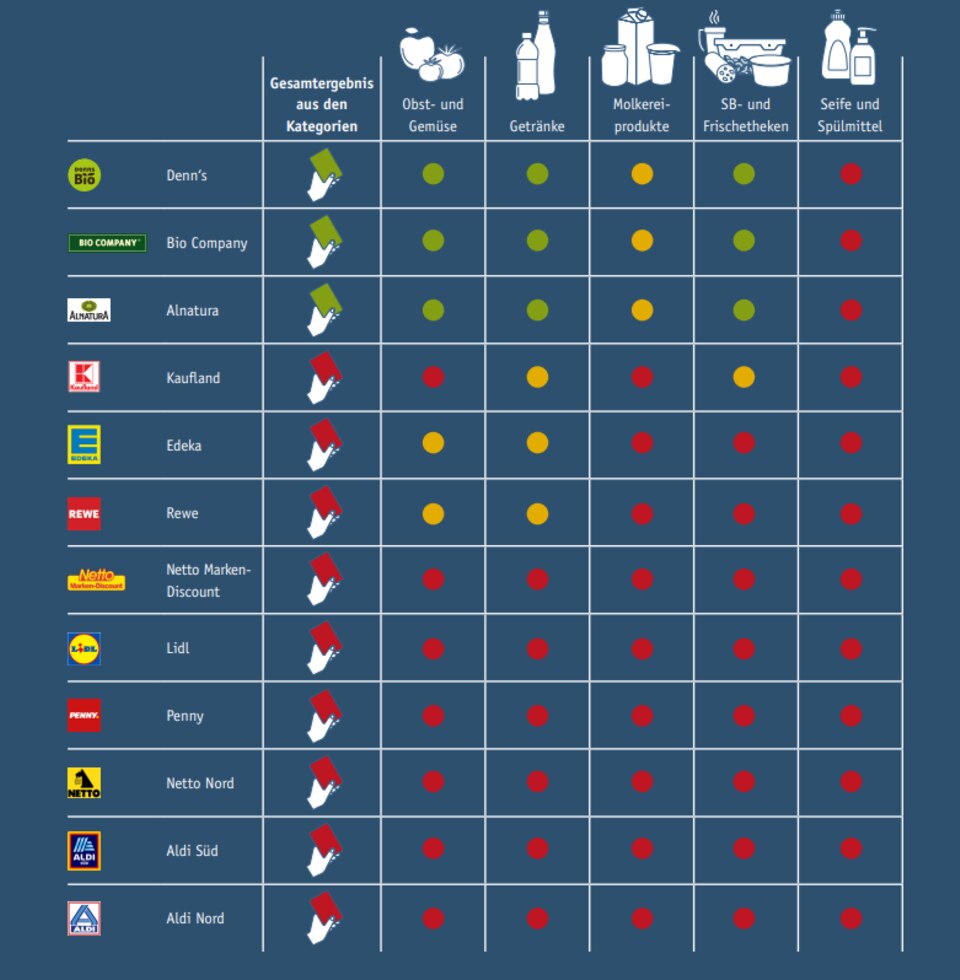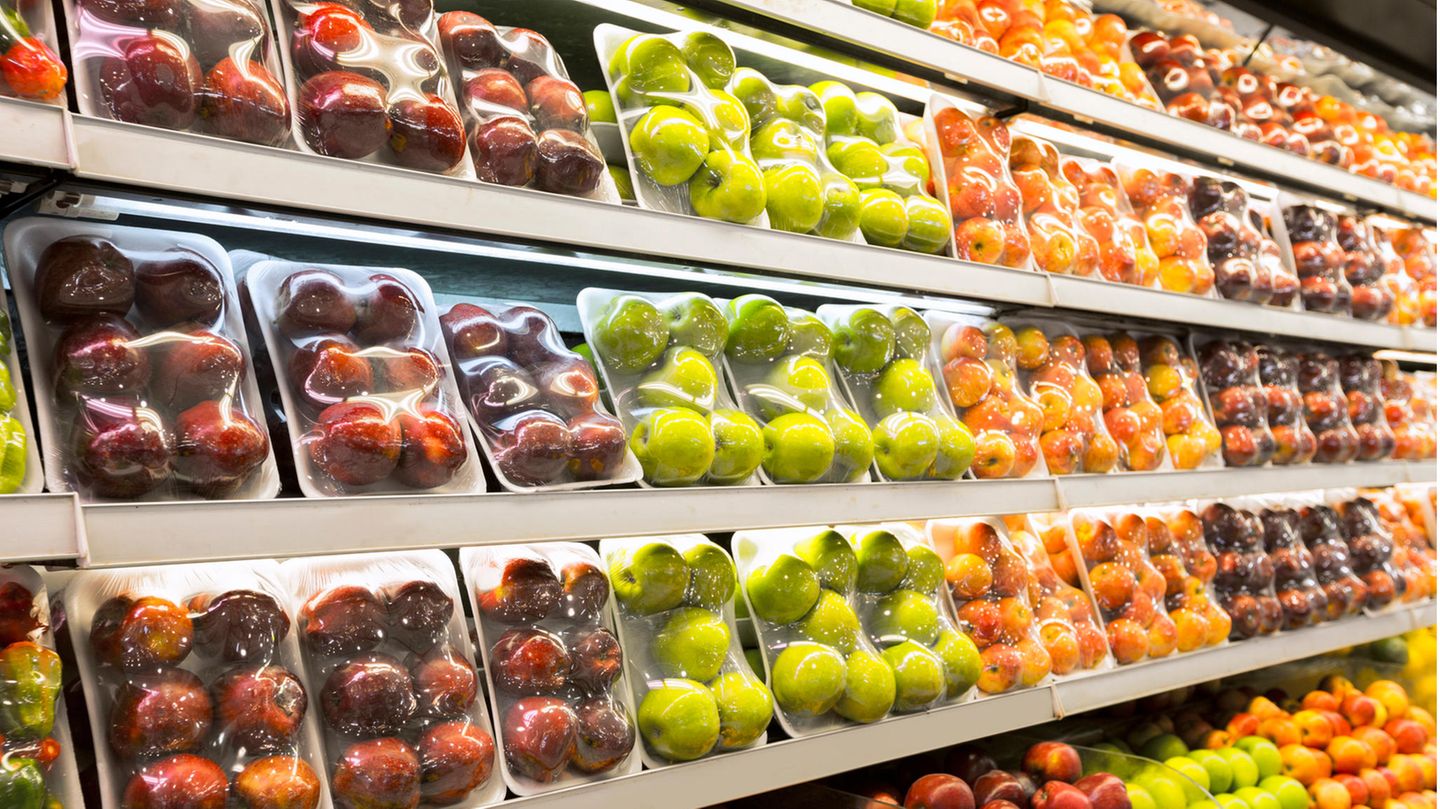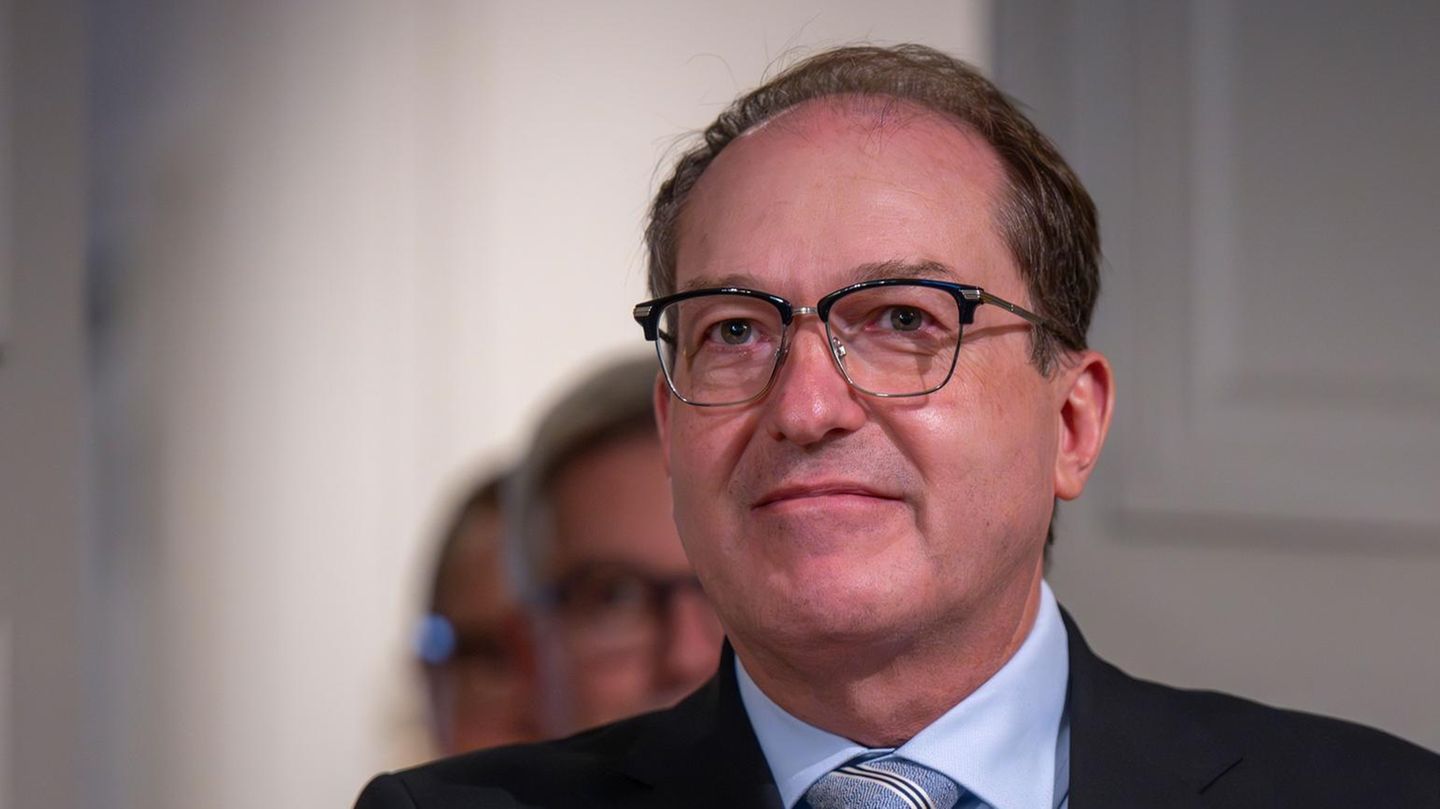The German Environmental Aid has compared which grocery stores have the most unnecessary packaging. The bio chains still perform best. Aldi does not agree with the result.
Most plastic bags are now banned from supermarkets. But how much help is that when the food itself is in unnecessary packaging? When even apples and cucumbers are squeezed into plastic and single-use packaging dominates the shelves?
The German Environmental Aid has subjected supermarkets and discounters to a packaging check and gives the industry a bad report: Despite all the promises of sustainability, the large retailers produced far too much packaging waste. “Most markets have a lot of hot air and an unresolved waste problem,” writes the DUH.
The environmentalists support this thesis with the results of test visits in 48 stores of twelve large supermarkets, discounters and organic chains. The testers visited four stores from each chain and then compared who had the most unnecessary packaging on their shelves.

Discounters worst
The worst performers were Aldi Nord and Aldi Süd. In the Aldi stores visited, more than 70 percent of the fruit and vegetables were in packaging. There were no returnable bottles on the drinks shelf. And milk and yoghurt were also only in disposable packaging.
Things didn’t look much better for the other discounters. Lidl, Penny, Netto Marken-Discount, which belongs to Edeka, and the independent Netto chain from northern Germany with the same name also received the red card from environmental aid in all five individual areas examined. These areas were fruit and vegetables, beverages, dairy products, self-service and fresh food counters, and soap and washing-up liquid.
Rewe, Edeka and Kaufland in the middle
The supermarkets Rewe and Edeka presented a slightly better picture, as they pack less fruit and vegetables and sometimes use reusable beverages. At Kaufland, the reusable portion and the self-service and fresh food counter also ensure a slightly better rating. The bottom line is that environmental aid is not satisfied with the packaging situation at Rewe, Edeka and Kaufland either.
Organic markets are doing well
Overall, only the three organic markets did well in the test: Denn’s, Bio Company and Alnatura. Here, fruit and vegetables are rarely offered in packaged form, disposable drinks are the exception and at the deli counters, goods can be filled in reusable containers you have brought with you. Only in the area of liquid soap and washing-up liquid do the organic shops have no better packaging solutions to offer than the other retailers.
That’s what Aldi and Co say
the stern has asked the criticized grocers for a statement. The test losers Aldi Süd and Aldi Nord do not agree with the results of the comparison. In a joint answer it says: “In our view, the presentation of the German Environmental Aid is one-sided and hides many practical challenges in the packaging area.” The DUH “above all put a lot of focus on the topic of reusable” and “therefore not all topics of our Aldi packaging mission are taken into account”. Aldi has set itself ambitious goals when it comes to the circular economy. In addition, packaging always has a protective function.
The Schwarz Group, to which Lidl and Kaufland belong, also emphasizes its efforts to reduce the use of plastic and increase the proportion of recyclates, without specifically going into the results of the packaging check.
The Edeka subsidiary Netto Marken-Discount “cannot understand” the assessment of the packaging check. Avoiding and optimizing packaging is an important concern for Netto, who has been involved there for years and “often also pioneers in the food discount”. However, it should also be taken into account “that in the course of the corona pandemic, many consumers are increasingly asking about packaged products, especially when it comes to fruit and vegetables, so the trade must also offer appropriate solutions here”.
A spokeswoman for namesake Netto Nord explains that the packaging check by Deutsche Umwelthilfe is “a snapshot and not a representative study, the results of which we do not want to comment on for this reason”. Work is being done to offer more unpackaged fruit and vegetables and to save on packaging.
Penny, Rewe and Edeka did not initially respond to requests.
The previous promises and efforts of the grocers are not enough for the German Environmental Aid. She calls for packaging waste to be halved by 2025, binding reusable quotas and higher taxes for waste producers.
Source From: Stern
Jane Stock is a technology author, who has written for 24 Hours World. She writes about the latest in technology news and trends, and is always on the lookout for new and innovative ways to improve his audience’s experience.




